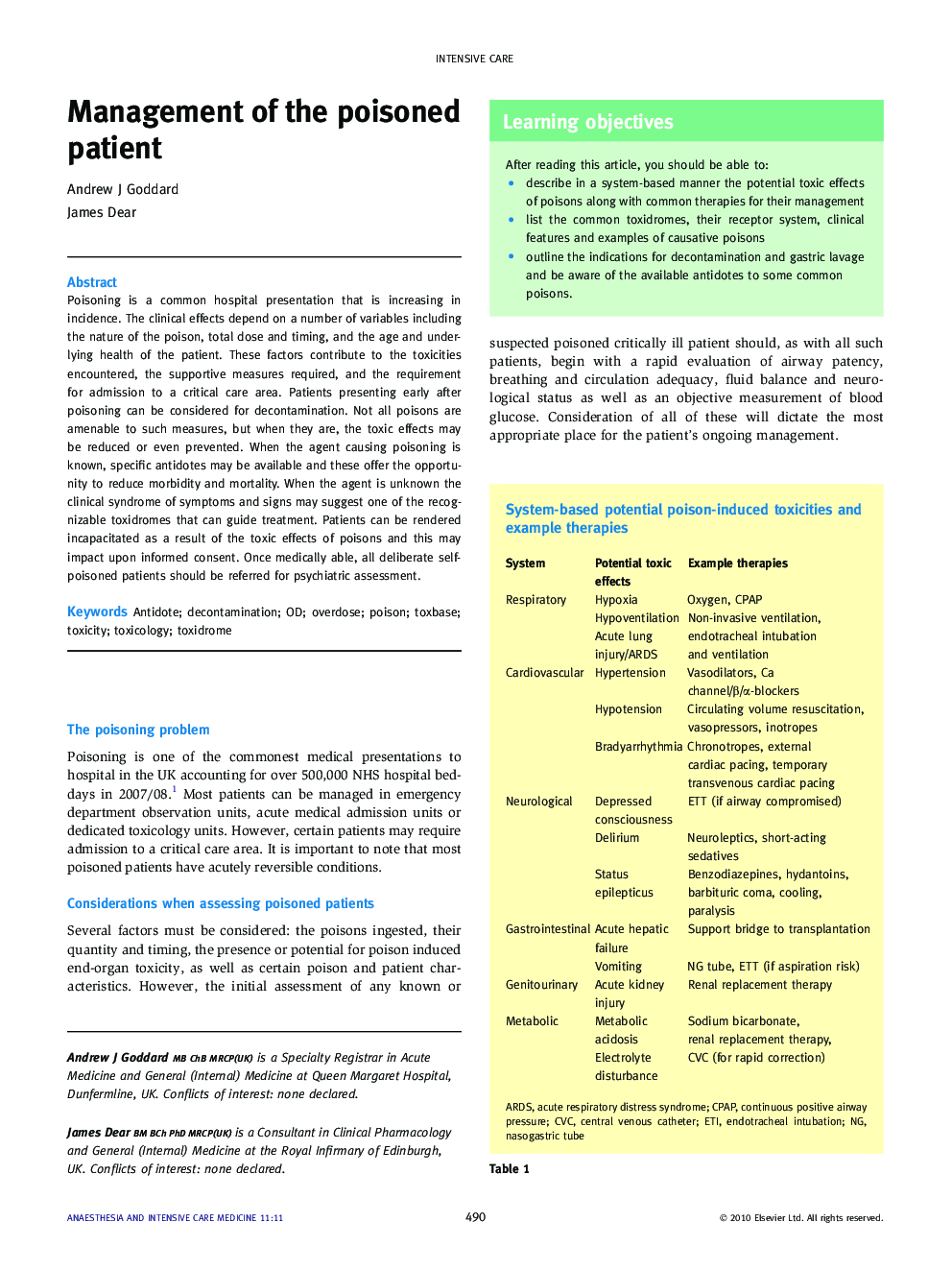| Article ID | Journal | Published Year | Pages | File Type |
|---|---|---|---|---|
| 2742979 | Anaesthesia & Intensive Care Medicine | 2010 | 4 Pages |
Poisoning is a common hospital presentation that is increasing in incidence. The clinical effects depend on a number of variables including the nature of the poison, total dose and timing, and the age and underlying health of the patient. These factors contribute to the toxicities encountered, the supportive measures required, and the requirement for admission to a critical care area. Patients presenting early after poisoning can be considered for decontamination. Not all poisons are amenable to such measures, but when they are, the toxic effects may be reduced or even prevented. When the agent causing poisoning is known, specific antidotes may be available and these offer the opportunity to reduce morbidity and mortality. When the agent is unknown the clinical syndrome of symptoms and signs may suggest one of the recognizable toxidromes that can guide treatment. Patients can be rendered incapacitated as a result of the toxic effects of poisons and this may impact upon informed consent. Once medically able, all deliberate self-poisoned patients should be referred for psychiatric assessment.
